Intermittent fasting isn’t anything new but people were shocked to find out how the body reacts to the process.
Losing weight and overall body fat is often a goal of many people and there are loads of ways you can go about that.
Sometimes for health reasons and other times just to feel more comfortable about the way they look.
Whatever the reason, one method that has caught people’s attention is intermittent fasting, where instead of dictating what you can eat, you focus on when you can eat and how long you go between meals.
A simulation video showing how the body reacts over a 36-hour period of not eating has also got people curious about the method.


Intermittent fasting can be less about what you eat but rather when (Getty Stock Image)
A 55-second video posted by the Wellness Wise channel on YouTube explained how the body burns fat after a few hours, ultimately ensuring a person loses weight.
It also highlighted that in just four hours of not eating, your body can go through some shocking changes.
The diet and mental health service The Emily Program reported on the less spoken about dangers of intermittent fasting.
While weight loss can be achieved through fasting, the service points out that, just like with any restrictive diet, there can be typical side effects.
While severity may vary and it may not apply to all who try intermittent fasting, these are some of the typical negative side effects.
- Excessive hunger pangs
- Fatigue and low energy
- Headaches (ranging from mild to severe)
- Dizziness
- Digestive issues (e.g., constipation and bloating)
- Irritability and other mood changes
- Bad breath
- Sleep disturbances
- Dehydration
- Polyuria (excessive urination)
- Potential impacts on reproductive health
- Nutrient deficiencies and malnutrition
The page also noted that there isn’t an extensive amount of data regarding intermittent fasting.
The Emily Program stated: “Current human research is very limited in size and duration, in part because this diet fad is not sustainable.
“In fact, many people are unable to complete intermittent fasting trials, as demonstrated by the high drop-out rate of intermittent fasting weight loss studies.”
James Betts, a professor of metabolic physiology at the University of Bath, echoed a similar statement, despite the many people who swear by it.


Experts remain divided on the benefits of fasting (Getty Stock Image)
Speaking to the Guardian, he said: “There [are] a lot of proposed benefits to [running on fats]. But a lot of the research hasn’t really [been borne out in] human beings. So we don’t see dramatic health benefits, certainly in the short term.”
The Emily Programme also noted that there was a concerning trend of participants having a heightened risk of developing or exacerbating an eating disorder.
The page clarified that while intermittent fasting is not itself an eating disorder, the habit of ignoring hunger cues can help create a disordered relationship with food.
Featured Image Credit: YouTube/wellneswise4
Topics: Food and Drink, Mental Health, Health
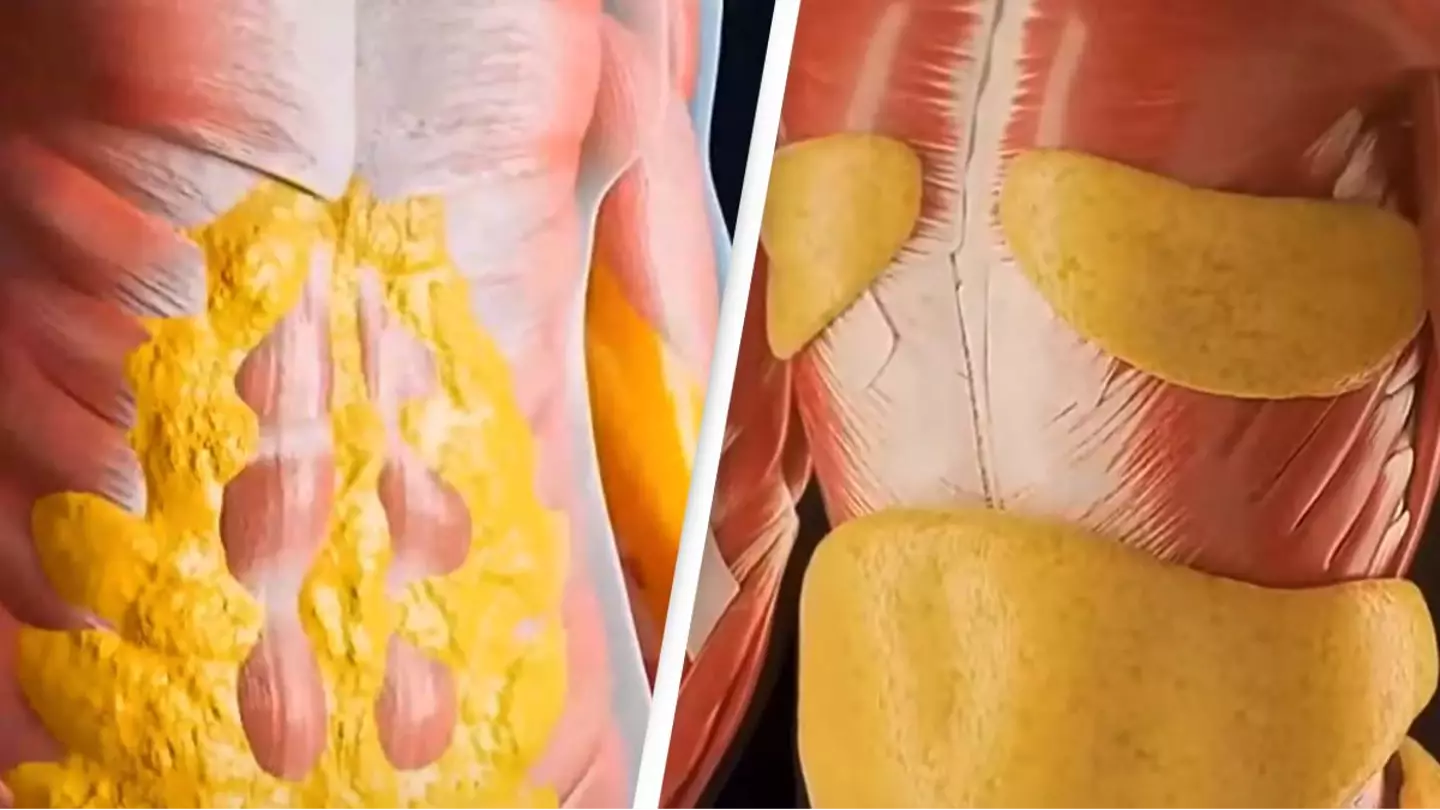

A mind-boggling simulation showing the impact fasting for a long period has on the body is currently going viral; however, some health experts aren’t quite so convinced.
People fast for a whole load of reasons, including religious observances, to promote weight loss, and even to improve cognitive function.
And while the idea of abstaining from food for a lengthy amount of time may seem abhorrent to some, others swear by the method and regularly incorporate it into their daily and weekly routines.
According to experts at Medical News Today, fasting can also help regulate blood sugar levels and improve insulin sensitivity when completed safely.
Fasting, however, isn’t for everyone, and it’s recommended that you seek health advice before embarking on one.
However, if you’re curious, a popular YouTube page has detailed exactly what happens to your body during a 36-hour fast—and the results are wild.


Your body goes through some mind-boggling changes if you don’t eat food for 36 hours (Getty Stock Image)
What happens to your body during a 36 hour fast?
Four hours
In a 55-second video, posted to YouTube by Wellness Wise on May 6, it’s revealed that after four hours of fasting, your body stops digesting food.
According to popular practitioner Doctor Kiltz, this is what is known as the ‘catabolic phase’.
On his website, he says this period is ‘characterized by the breakdown of larger molecules of stored energy into smaller energy molecules which are mobilized to fuel your cells’.
Eight hours
So you haven’t eaten for eight hours?
Well, this is the time when sugar starts to drop in your blood and your body begins to use stored glycogen for energy instead of relying on new fuel coming in, as per the YouTube video.
12 hours
After 12 hours, your body is depleted of glucose, causing your liver to start breaking down fat into fatty acids called ketones.
This process of turning ketones into food is known as ‘metabolic switching’ and, according to the BBC, is the reason why fasting can lead to weight loss.
.jpg)
.jpg)
Different things happen to your body the longer you abstain from food (Getty Stock Image)
16 hours
A cellular process known as autophagy takes place after 16 hours of going without food.
As per the Cleveland Clinic, this allows a cell to disassemble its junk parts and repurpose the salvageable bits and pieces into new, usable cell parts.
Dr Hiltz explains that exercise and resistance training also helps the autophagy process because if it gets disrupted, it can cause ‘problems associated with abnormal cell growth’. Yikes.
24 hours
A full day without food is a pretty long time for most, but this 24-hour mark is where major cellular repair takes place in the human body.
According to the YouTube video, which has been viewed more than eight million times, your body is fully in fat-burning mode, reducing inflammation and improving insulin sensitivity.
30 hours
The growth hormone spikes 30 hours after fasting, which reportedly helps to preserve muscle and promote fat loss.
The YouTube video also states that this is the period where ‘deep healing’ begins.
36 hours
If you fast for 36 hours then you’ve reached the stage of maximum autophagy where your body regenerates tissues and boosts your metabolism.
This full-body reset can be extended to upwards of 72 hours if you want, too.
What do researchers say about fasting?
Experts are divided on whether or not fasting is good for the body, with some claiming a lack of human-backed studies renders making conclusions difficult.
“There [are] a lot of proposed benefits to [running on fats]. But a lot of the research hasn’t really [been borne out in] human beings. So we don’t see dramatic health benefits, certainly in the short term,” James Betts, professor of metabolic physiology at the University of Bath, told The Guardian.
Meanwhile, studies have also found that people who regularly fast more than 16 or 18 hours a day have a higher risk of gallstones, as per News In Health.
Other potential fasting side effects include intense hunger and food cravings, various digestive issues, irritability and low moods. Mark Mattson, a Johns Hopkins neuroscientist, argues that there are a myriad of benefits that come with fasting.
“Many things happen during intermittent fasting that can protect organs against chronic diseases like type 2 diabetes, heart disease, age-related neurodegenerative disorders, even inflammatory bowel disease and many cancers,” he says.
Remember, everyone reacts differently to fasting—so it’s worth checking with your medical professional before taking part in the practice.
Featured Image Credit: YouTube/Wellness Wise
Topics: Food and Drink, Health, Science, YouTube


A warning has been issued to those who indulge on a bowl of cereal to start the day as it can having a negative impact on your health.
Cereal is a breakfast staple for millions of Americans, but it could be doing more harm than good.
Whether it be Cheerios, Coco Puffs, Special K or Frosted Flakes, there are plenty of cereal options to choose from before the morning commute to the office.
However, you may want to rethink that morning routine as one nutritionist has explained how ‘one of the worst things you can start your morning with’.
While a sweet breakfast can give you a boost to start the day, biochemist Jessie Inchauspe has explained how too much cereal over time can lead to serious health conditions such as type 2 diabetes.


Cereal is a staple for many Americans (Getty Stock Photo)
As per the Mirror, Jessie explained how eating too much glucose, found in spades in cereal, can lead to your body releasing insulin to remove it.
The glucose not required is then stored away as either glycogen or fat, with a spike in the sugar substitute hurting ‘our body’s ability to make energy efficiently, makes us tired, and kicks off all kinds of side effects’.
This ‘hurts our body’s ability to make energy efficiently, makes us tired, and kicks off all kinds of side effects’.
“That breakfast will also deregulate our glucose levels for the rest of the day, so our lunch and dinner in turn will create bigger spikes,” she added.
So, what’s a good substitute for cereal at the breakfast bar?
Well, Jessie suggests opting for a savoury breakfast alongside some protein, fibre and fat, instead of the usual glucose intake.
While it may be trendy, avocado on a slice of toast would certainly be a good option as a healthier alternative to start the day.


Cereal may not be the best option for breakfast (Getty Stock Photo)
Experts have previously discussed why cereals are not a good option for breakfast, despite proving that yummy start to the day.
The majority of cereal options have a lot of sugar in it, with increased sugar intake is also linked to rising levels of obesity, as well as inconsistent energy levels.
‘Health washing’ it with descriptors like ‘low calorie’ or ‘high fibre’ is a way to make the product more appealing, along with those big colourful packets and amusing advertising campaigns.
Event though everything in moderation is a good rule to follow, you may want to switch out the cereals for avocado for those added health benefits right away.
Featured Image Credit: Getty Images/Antonio_Diaz
Topics: Food and Drink, Health, Science
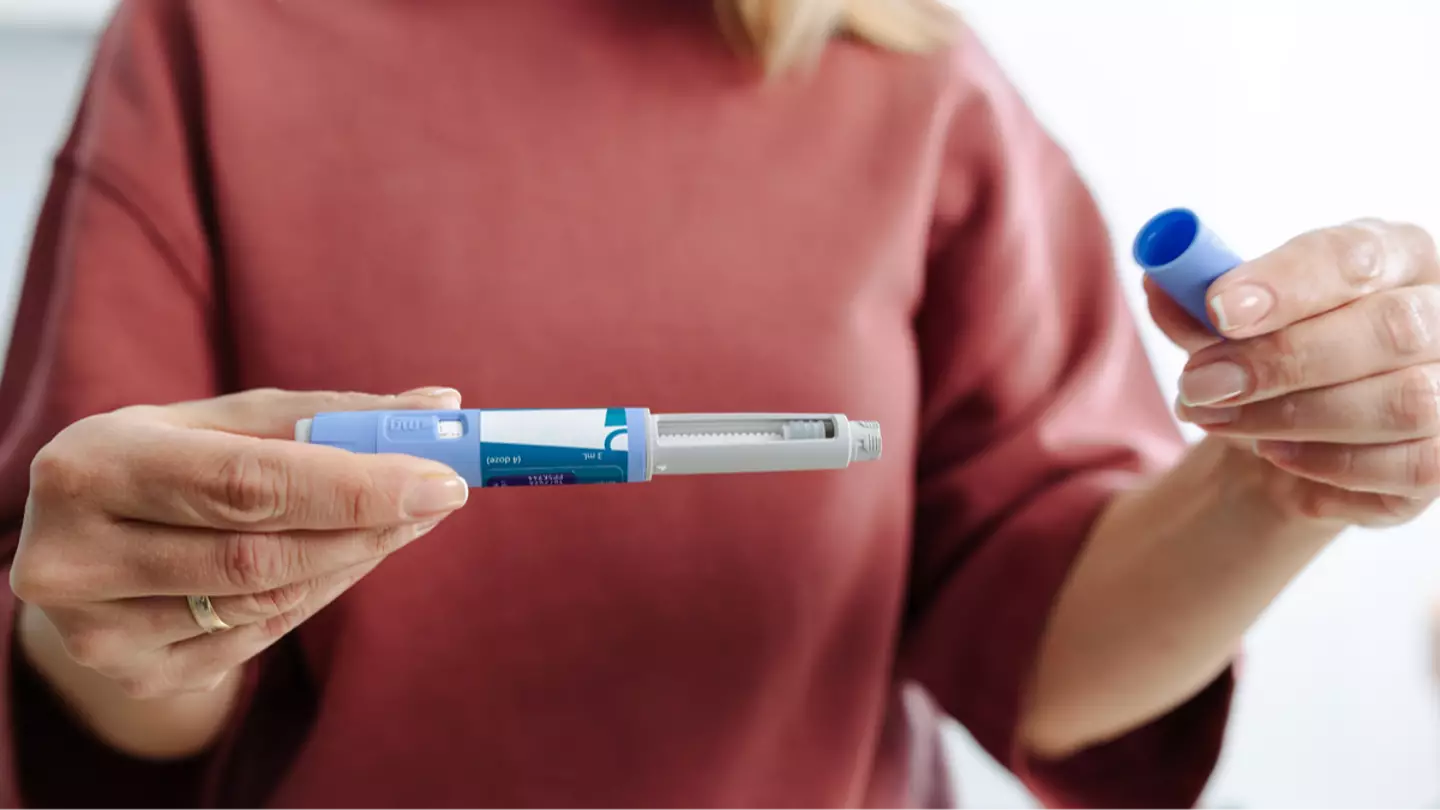

A dentist has shared insight into the impacts that GLP-1 medications such as Ozempic can have on teeth after searches into the subject soared.
GLP-1 plays a crucial role in regulating blood sugar, appetite, and digestion, and while it is naturally occurring hormone in the body, medications using the hormone can also be used to help treat type 2 diabetes.
It’s this condition that the drugs are typically prescribed for, but their impact on appetite and digestion mean they are also popular with people trying to lose weight – despite the fact Ozempic hasn’t been approved by the FDA for weight loss.
As members of the public continue to research the drugs and how they may affect them, a simulation revealed how Ozempic works on the body to ‘activate the part of the brain that make you feel full, reducing your appetite’.
Among the questions people have about Ozempic include whether it can have an impact on your teeth, with Google trend data cited by Hello! revealing that searches for ‘Ozempic + Teeth’ surged by 216 percent in just the one week.
To address this concern, dentist Dr. Sofina Ahmed of Viva Dental spoke to the publisher about how GLP-1 medications might impact your mouth and teeth.
Dr. Ahmed pointed to symptoms such as dry mouth and increased sensitivity in the mouth as results of these kinds of drugs, saying: “It can be a surprise for patients. They focus on weight loss and don’t realize how much it can affect oral health. But saliva, chewing activity, and hormonal balance all play a vital role in maintaining a healthy smile.”
Dry mouth and infections
The use of GLP-1 medications can cause a reduction in the amount of saliva your body produces, which in turn can leave teeth vulnerable to disease and decay.
The dentist explained: “Without enough saliva, food particles and acids aren’t washed away. This creates the perfect environment for bacteria to thrive.”
A dry mouth can also make fungal infections and ulcers on the tongue, gums and cheeks more likely.


GLP-1 medications can cause dry mouth and sensitivity (Getty Stock Photo)
Increased sensitivity and sunken smiles
Patients taking GLP-1 medications have reported increased pain when eating foods that are particularly hot, cold or sweet – and if left untreated, Dr. Ahmed warned that the impacts can ‘lead to enamel erosion or receding gums’.
In turn, receding gums can then impact the look of your face overall.
The dentist explained: “Fat loss in the cheeks and jawline can cause gums to shrink and smiles to look aged or sunken.”
Increased risk of cavities
A knock-on effect from the use of GLP-1 medications is a change of diet, including a reliance on caffeine and low carbs. However, this intake can be harmful to teeth, as the dentist said: “Caffeine, protein fermentation and fewer fibrous foods create a more acidic environment. Acid weakens enamel and raises the risk of cavities and ulcers.”
Similarly, a reduction in chewing – due to a reduction in eating – can be harmful for teeth, as Dr. Ahmed said: “Chewing stimulates saliva production and helps cleanse teeth naturally. Less chewing equals faster plaque build-up.”
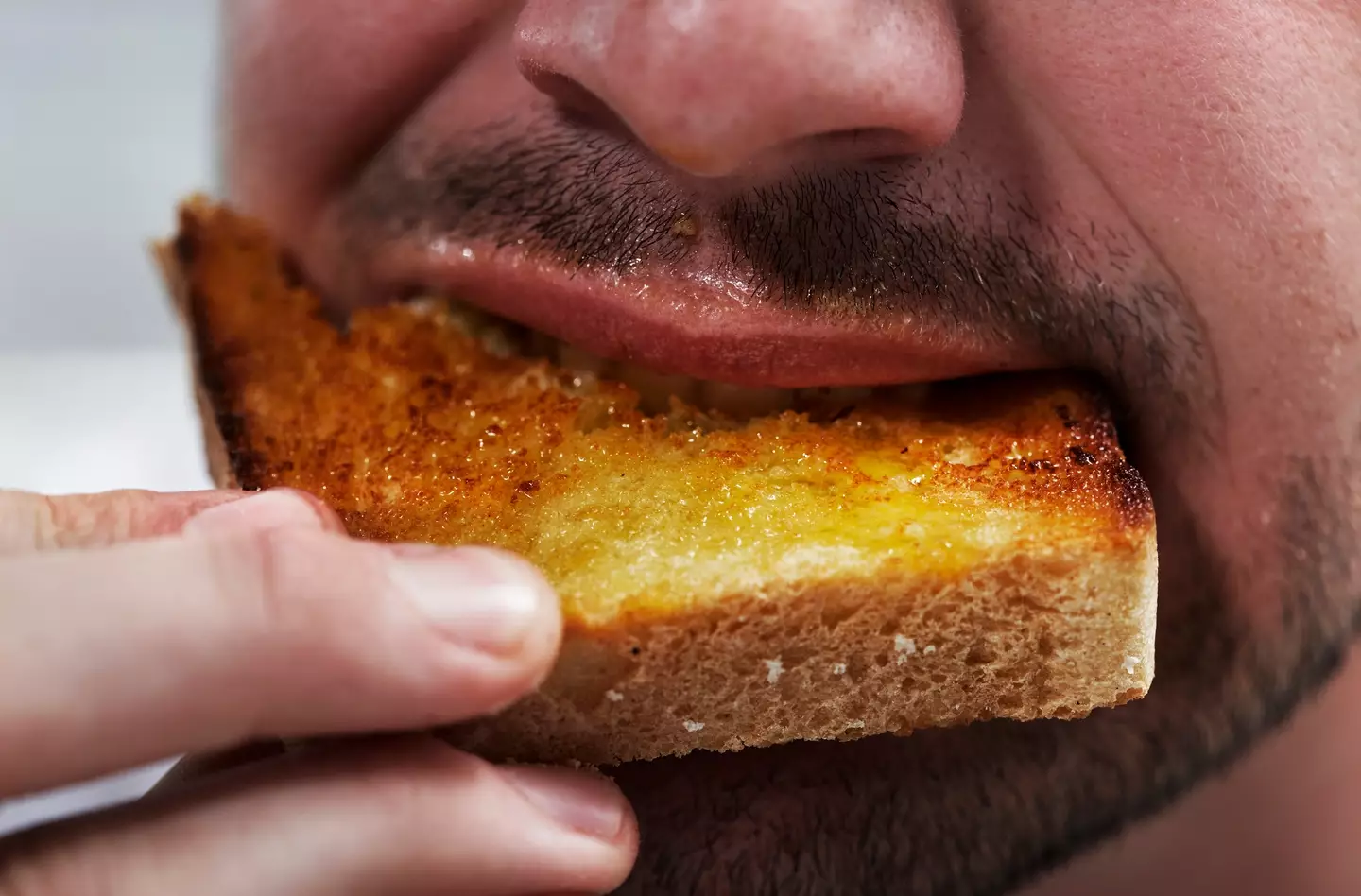

Chewing helps cleanse teeth (Getty Stock Photo)
How to tackle impacts
Offering advice to patients who may be using GLP-1 medications, Dr. Ahmed encouraged people to drink water ‘consistently throughout the day’, potentially adding a sugar-free electrolyte tablet to help with absorption.
“A humidifier at night can also prevent overnight dryness,” she said.
Sucking on mints or chewing sugar-free gum can help boost saliva production, and the use of a fluoride-rich toothpaste can also be beneficial, with the dentist recommending that patients ask professionals about a prescription toothpaste if any sensitivity or decay worsens.
Other ways to stay healthy include avoiding highly acidic and sugary snacks, considering getting a night guard to avoid grinding your teeth, and taking probiotic lozenges or oral probiotics to help restore healthy oral bacteria.
Most important, Dr. Ahmed warned people to tell your dentist if you’re taking GLP-1 medications, as it can influence treatment decisions and monitoring plans.
Featured Image Credit: Getty Images/Milko
Topics: Ozempic, Health, Food and Drink
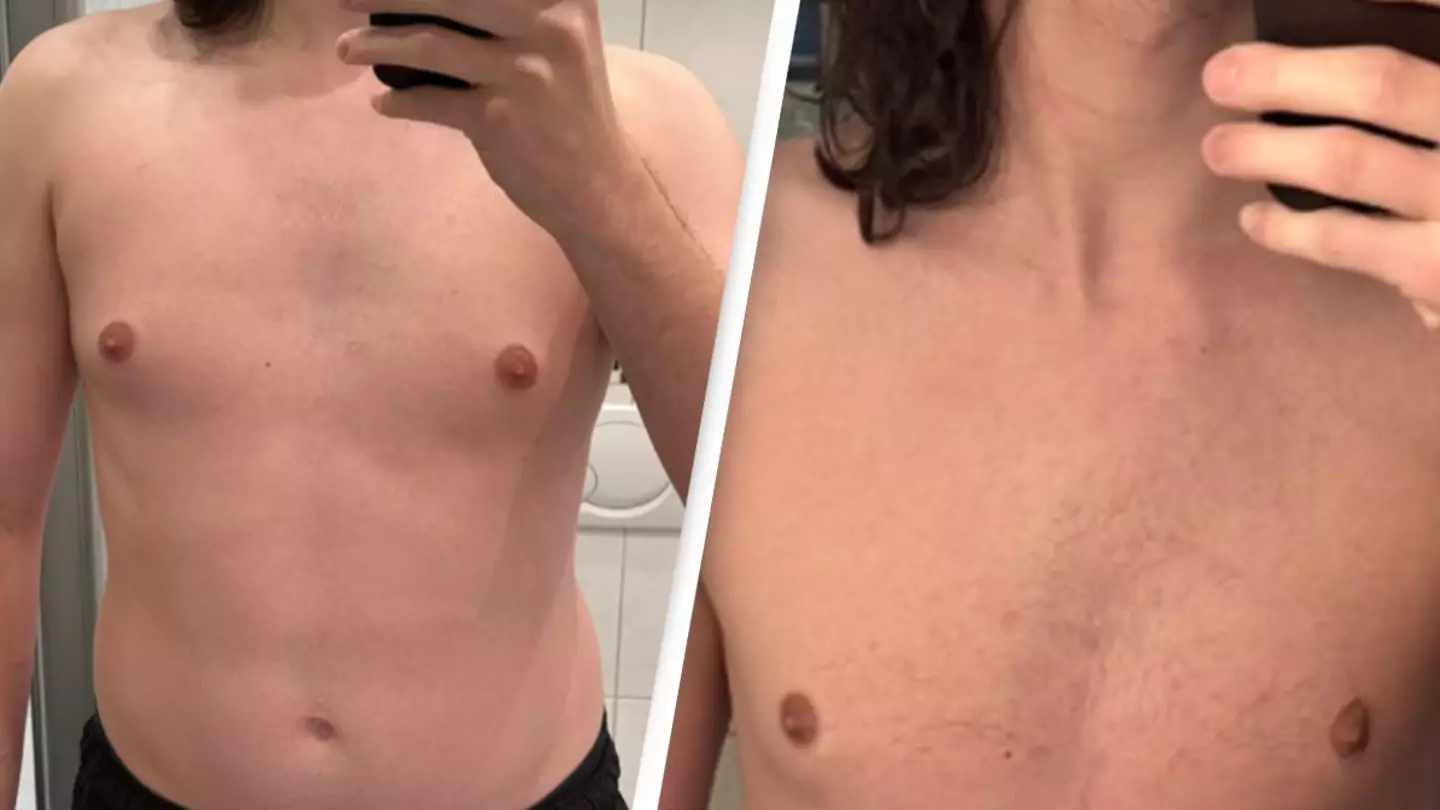

Content warning: This article contains topics some readers may find distressing
A man who decided to have no food and only water for a month has detailed the impact it had on his body.
Of course, it’s certainly not healthy to have no food for such long period of time, so such a challenge is advised against by healthcare professionals.
While factors such as sex, age, starting weight, and water intake all playing a role, experts have discovered someone who is starving themselves could die in 43 to 70 days.
Twitter user @maru.eth decided to drink only water for a period of 42 days, but ultimately called it quits on Thursday (January 23) after 30 days.
Taking to Twitter on December 26, at the start of the challenge, he said: “Updating this thread with my 1000-hour (42 days) water fast progress that I started after Christmas dinner. I’ll only drink water and supplement electrolytes (sodium, magnesium, potassium).”
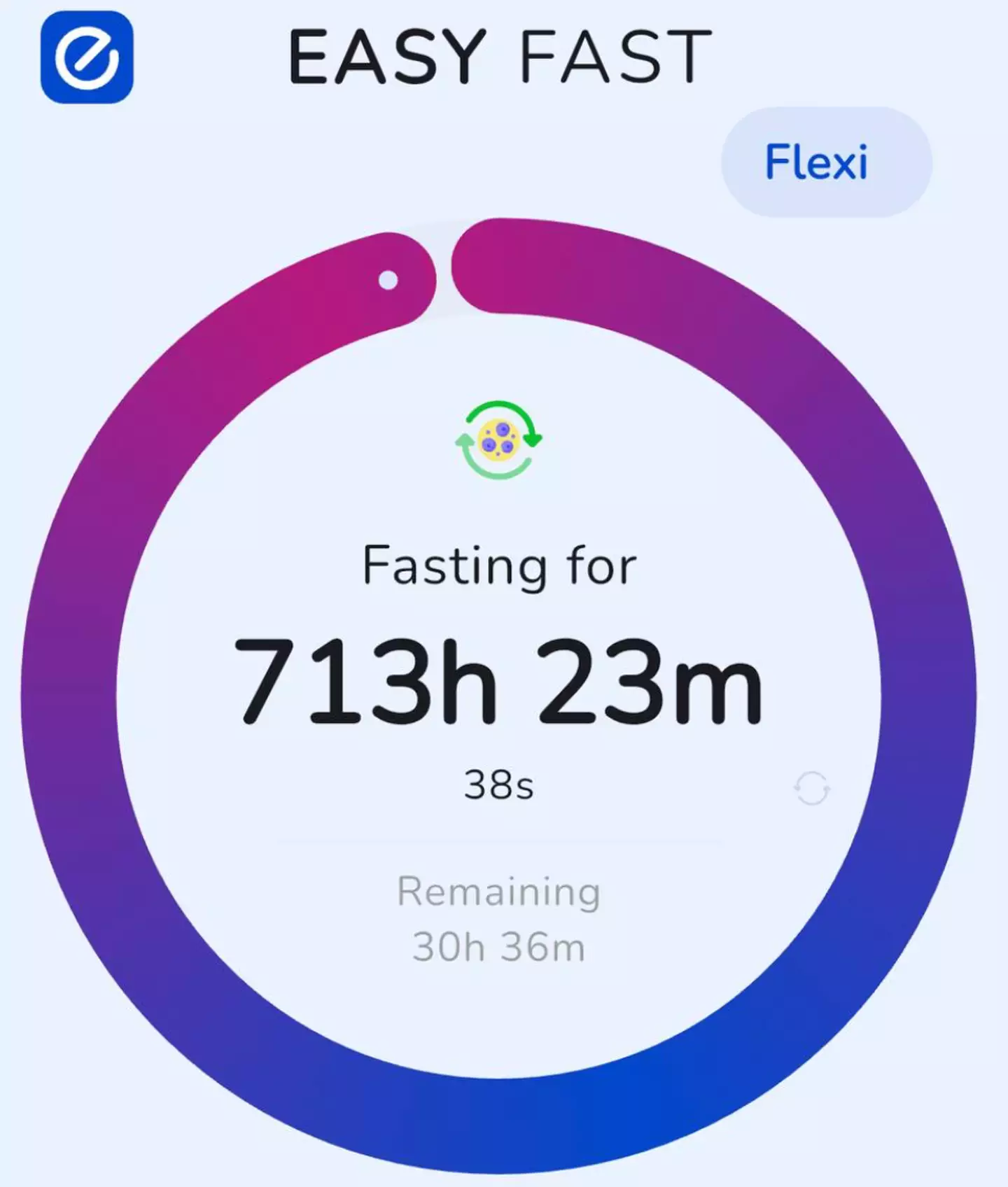

He had no food and just water (Twitter/@wasserpest)
The man explained how his weight on December 24 was 97.85kg (216lbs), while he was six-foot-four tall.
On Twitter for the past month, he has been posting regular updates about his progress, beginning by explaining how the first 72 hours were the ‘toughest’.
“The first 72h are the toughest because your body is constantly signaling you to eat. it gets way easier after that initial period,” he wrote.
After his first week, the man had dropped 92kg, which coincided with the New Year’s celebrations.
“Spending NYE without any yummy snacks or drinks was tough, but I made it, I’m alive. slept pretty well and feeling good overall, but I can’t shake off the feeling that this fast feels considerably different than my other ones… somethings up and I’m not exactly sure what,” he explained.
Throughout his test, @maru.eth explained how sleep was never really a problem, but the mornings were usually ‘rough’.


The man has detailed his body transformation (notmaru/Instagram)
“I lose approximately 300g each day if I keep my sodium intake constant. I still lost actual fat but you don’t see that on the scale because of increased water retention,” he explained in a follow-up post.
One question many will be asking is how going for a number two is impacted by having zero food for such a long time.
The man explained how his stool was ‘very long and that there’s residue coming out even after 13 days of not eating anything’.
On January 17, he said how he had gone for his first poo in a whopping 12 days.
And after a gruesome month, he ended the fast this week with a weight of 82.95kg, a drop of 15kg.
“I’m finally done. 30 days without food, just water,” he said. “I didn’t quite reach the 1000 hour mark as I initially planned but I’m still proud I kept at it for so long. I did this to challenge myself and for no other reason! never fasting for so long ever again.”
If you’ve been affected by any of the issues in this article and would like to speak with someone in confidence, call the BEAT Eating Disorders helpline on 0808 801 0677. Helplines are open 365 days a year from 9am–8pm during the week, and 4pm–8pm on weekends and bank holidays. Alternatively, you can try the one-to-one webchat




